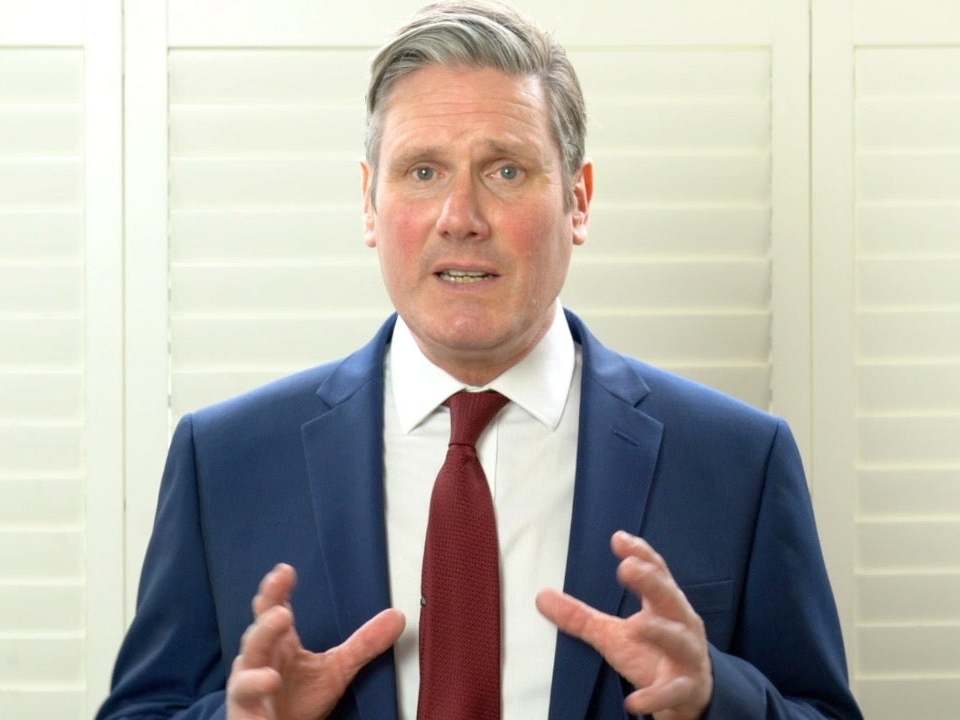Lessons from history for Keir Starmer as he takes Labour’s leadership in a national crisis
These are almost unprecedented times, but there’s still a thing or two the new leader of the opposition can learn from his predecessors, writes Sean O'Grady


Becoming leader of the opposition at a time of national crisis is a moment of opportunity – but also of danger. The opportunity is obvious: a chance to make your name, boost your party’s standing and do something for the people you purport to represent. The danger is that no one is listening to you.
At a moment when a prime minister is under the most severe of pressures, a skilful opposition leader can gain some respect and political profile just by doing their job effectively. The key to doing so is to balance acting in the national interest and holding ministers properly to account. Erring on the side of partisanship makes a political leader look cheap and opportunistic. Giving the government an easy ride is failing in the very national duty you’re supposed to be doing. It is a tricky act to get right.
Obviously the coronavirus emergency is unprecedented in modern times. The Spanish flu pandemic a century ago, the closest parallel to the current outbreak, predated the NHS and arrived long before medical science could do much about it. The political response a century ago was practically irrelevant, as it had been in every previous plague.
But there have been other crises, of course, and the most recent, Brexit, gave Keir Starmer something of an apprenticeship. As shadow Brexit secretary under Jeremy Corbyn, Starmer did succeed, or as well as anyone could, in managing the bitter Leave-Remain divisions within the country and within his party. Still, it is also true that almost all of the focus was on the Conservative Party and, when the time came in 2017 and 2019 for Labour to capitalise on the Tories’ near-collapse, in the end it failed. The opposition to the May and then the first Boris Johnson Conservative governments came from within the Tory Party itself. Mr Corbyn, lukewarm Remainer and historical Leaver, arguably ended up with the worst of all worlds; but even Sir Keir, a more consistent European and a more effective parliamentarian, might not have done much better in such strange circumstances.
In times of war a coalition national government has usually emerged, and the role of leader of the opposition is put in abeyance for the duration. At other more normal times a new leader of the opposition appears after their party has lost a general election (or a succession of them) and has to “pick up the pieces”. The government will be freshly elected or re-elected, and enjoying its honeymoon. Indeed, governments may actually be popular for long periods, in which case the opposition leader has an especially miserable time. Such was, for example, William Hague’s fate during the high noon of New Labour, and for Michael Foot and Neil Kinnock during most of Margaret Thatcher’s long hegemony in the 1980s. As all of those leaders found, trying to land any criticism on a dominant government is far harder if your own party is engaged in a civil war.
On the other hand, an opposition leader can start to hold the initiative with solid internal support and against a government visibly decaying. The most effective leader of the opposition in a century was Harold Wilson’s spectacular spell at the fag end of the long 1951 to 1964 era of Tory rule. An exhausted administration latterly led by Harold Macmillan then Sir Alec Douglas-Home offered Wilson every opportunity to mock and deride them. Beset by spying scandals, sex scandals, sex-and-spying scandals, failures on Europe and the economy, and lumbered with a stuffy “grouse moor” out-of-touch image, they were easy meat – but Wilson’s wit and modernising “New Britain” vibe made sure it was Labour that won the benefit (though in the end he squeaked in with only a tiny majority). Three decades later, John Smith and then, much more ferociously, Tony Blair’s New Labour did much the same with some strikingly similar themes against John Major’s clapped-out and chaotic administration.
Sometimes, a relatively unpopular opposition leader can unseat a government if that government is sufficiently incompetent. Hence the argument sometimes made that anyone could have beaten Major in 1997, or almost have beaten May in 2017. It is much more the case with Margaret Thatcher who, before she came to power, was perceived as inexperienced and unlikeable when the pollsters set her against the then Labour premier, James Callaghan, who made a point of patronising her. Still she beat him, in 1979, because his government had simply run out of energy and ideas. The similarly unfancied and aloof Ted Heath managed to kick the supposed genius Wilson out in 1970.
Most former leaders of the opposition look back on their job as the least rewarding and most frustrating of their careers, even if they were good at it. It is no substitute for even the most junior of ministerial appointments. Mr Corbyn, the eternal campaigner, ever suspicious of power, does seem, unusually, to have enjoyed himself and is proud of “winning the argument”. Well, his successor seems more set on getting into government, and more realistic about how to do it. The second Johnson government has had a difficult start. Yet, even with a government trying to navigate its way through the Covid-19 emergency and the impact of Brexit, and with a party perhaps more coherently behind him, Sir Keir Starmer is going to find the job no easier than his processors, and he may need more than one election to take Labour back into government. For this clever, principled, energetic leader, the 2020s will be hard labour.
Join our commenting forum
Join thought-provoking conversations, follow other Independent readers and see their replies
Comments
Bookmark popover
Removed from bookmarks